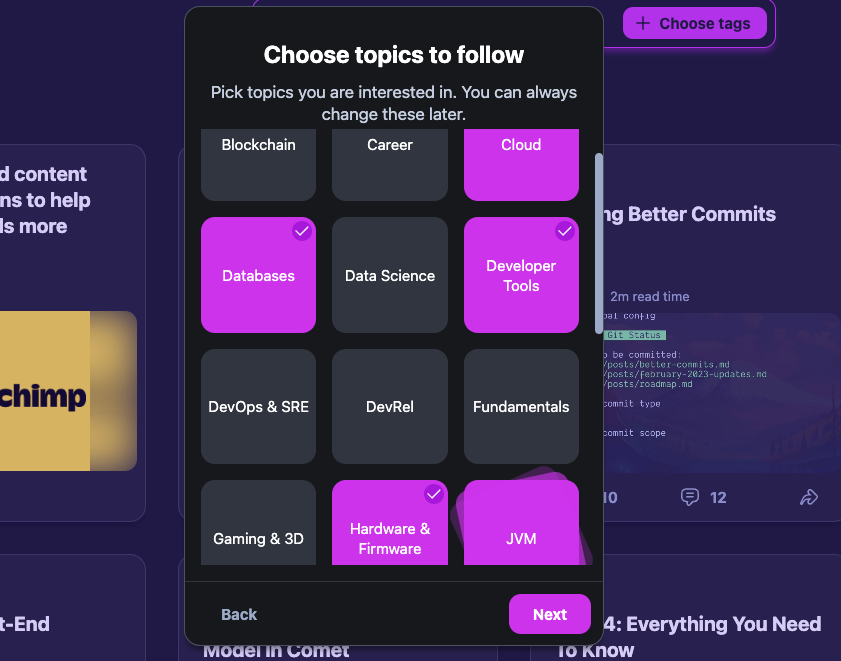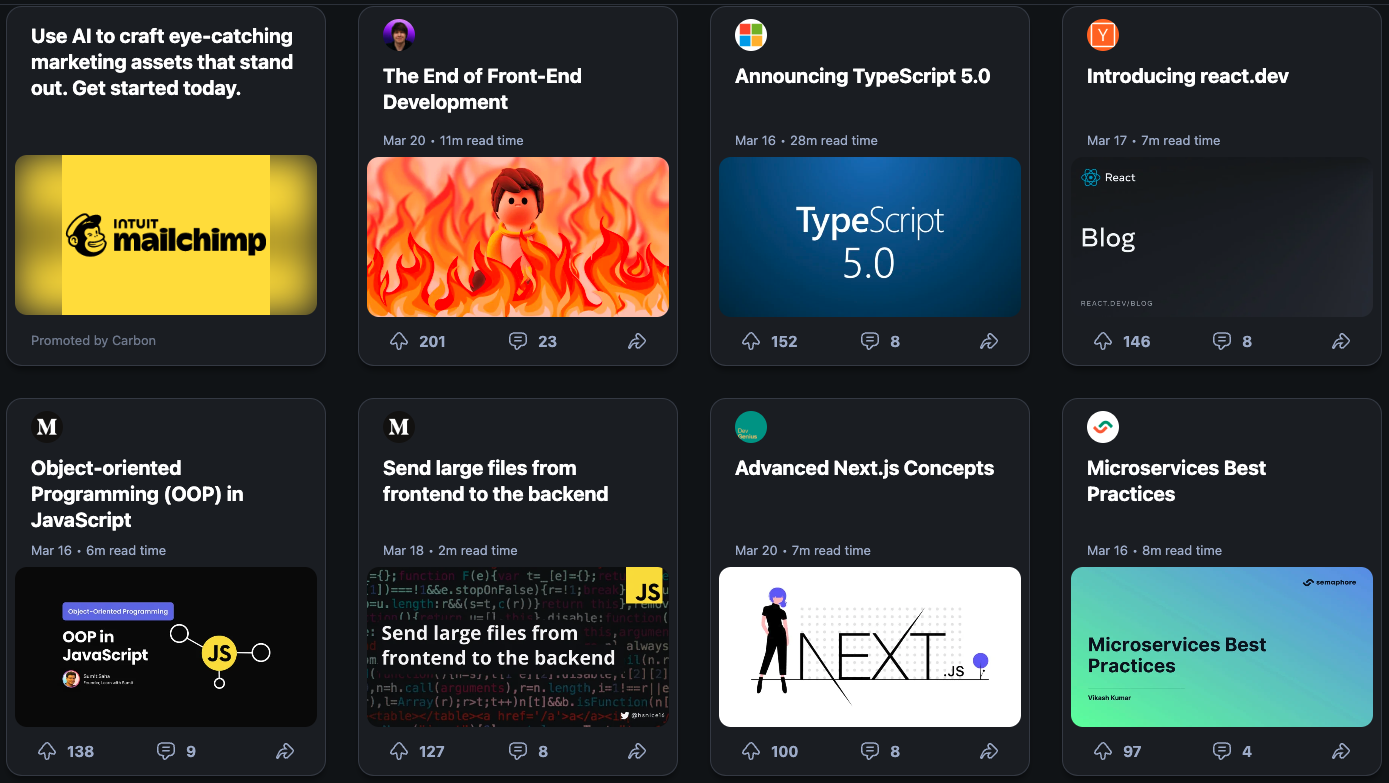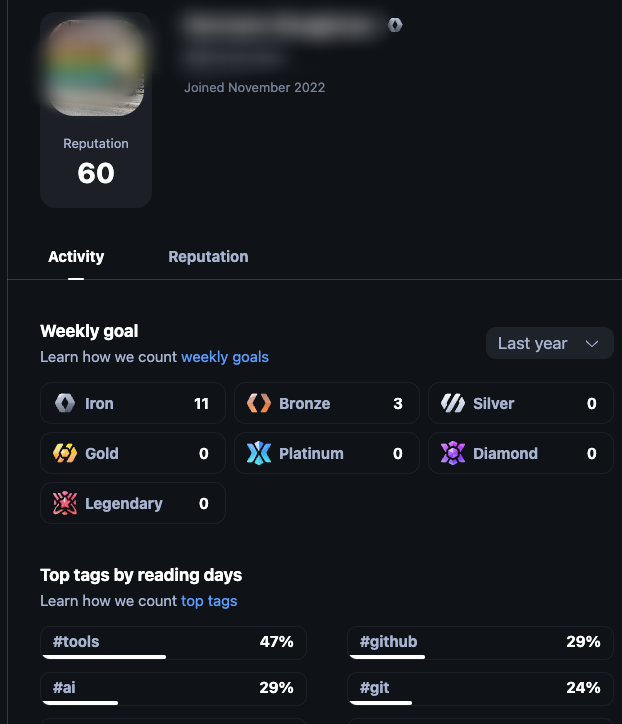If Reddit and Stack Overflow were ever to create an offspring, it might look a little something like Daily.dev, perhaps with a little bit of Hacker News somewhere in the genetic makeup too.
Founded out of Tel Aviv, Daily.dev wants to help like-minded software developers connect, share knowledge and discuss all that’s happening across their ecosystems. The three-year-old startup is today announcing its first institutional funding, securing a $11 million seed tranche from a slew of backers including lead investor Aleph, an early-stage VC firm that has previously backed the likes of WeWork, Lemonade, and Houseparty.
Daily recap
Daily.dev can be accessed through a number of channels, including a web app, Android, a progressive web app (PWA), and a browser extension. During the initial onboarding process, users are first asked to select topics that interest them — such as databases, developer tools or data science — and then they sign up using either their email address or credentials associated with Facebook, Google, GitHub, or Apple.

Daily.dev: Choose topics Image Credits: TechCrunch / screenshot
Users can then see a personalized feed based on their stated preferences, which might include how-to guides, news articles, questions, and general discussions, or they can filter by the most popular posts. Anyone is free to bookmark threads, upvote posts of comments, and kickstart their own conversations.

Daily.dev: “Most upvoted” Image Credits: TechCrunch / screenshot
Over time, users accumulate a “reputation” score based on their upvotes from the broader Daily.dev community. While this kudos can serve as an at-a-glance indicator of trust, in time it will also be used to determine access to special privileges, though the company hasn’t yet announced what type of perks this will include.

Image Credits: Daily.dev
While this voting system is certainly reminiscent of something like Reddit or Stack Overflow, Daily.dev is notable in that there is no downvote button — a move partially designed to avoid the kind of toxicity and negativity that has plagued other similar online communities.
“Establishing a healthy and sustainable community has to do a lot with managing emotions, negativity in particular,” Daily.dev co-founder and CEO Nimrod Kramer explained to TechCrunch. “So far, we haven’t built a downvote feature, mostly due to that logic.”
However, it’s worth noting that users can still lose reputation points, for example if one of their posts is reported by other users and that post is banned by platform moderators. Kramer also said that they’re thinking about other ways to embrace the ethos of a downvote button without compromising the “healthy” vibes they’re trying to foster.
“We are considering non-toxic ways to implement a new downvote mechanism to allow us to better personalize the platform, and also to let developers express criticism, without the potentially offensive implications,” he said.
There’s no escaping the fact that there are plenty of developer-focused communities out their on the web, from Discord and Hacker News, to GitHub and Stack Overflow. So what, exactly, is Daily.dev hoping to bring to the mix? Kramer reckons that most of the incumbents are either too general or too focused on specific problems.
“There’s a gap — when developers gather around general social platforms like Reddit, Discord and Twitter, the professional content they get is mixed with general content, marginalizing the domain-specific and highly-professional insights that fuel them,” Kramer said. “When they collaborate on developer platforms such as GitHub and Stack Overflow, the social experience they get is mostly siloed to specific repositories and Q&As. With Daily.dev, developers get a platform that’s built to their very specific preferences, values and language and offers a wide breadth of opportunities for learning, community and collaboration.”
As a bonus, Daily.dev has made large chunks of its platform available on GitHub under an open source license, a move that’s common to many companies looking to ingratiate themselves with the software development fray. Developers love open source tools, as it allows them to tinker with the underlying technology and even contribute fresh code themselves.
“We strategically decided to open-source big parts of our code base to establish trust and transparency with our global developer community,” Kramer said. “It’s a win-win, because our users are developers. Being open source allows users to give feedback, contribute features, and fix bugs.”
Daily bread
In terms of business model, Kramer said that Daily.dev currently makes money from tech companies running paid promotions on initiatives that might be of interest to developers, which for now translates into promoted discussions like this:

Daily.dev: Promoted posts and discussions
As for its user base, Kramer said that Daily.dev has around 100,000 active daily users, including developers from all the big tech companies such as Apple, Google, Amazon, Microsoft, and Meta. Some 90% of these users also use the browser extension, according to Kramer, meaning they will see Daily.dev whenever they launch a new tab.
While Daily.dev has grown over the past few years off the back of bootstrapping, its fresh $11 million cash injection will allow it to bolster the platform with new features. This includes something called “Daily.dev squads,” which are effectively private spaces for developer groups to coalesce.
“This feature is currently in closed beta with several hundreds of our most active power users, and will be released publicly later this year,” Kramer said.
In the future, Daily.dev may also monetize through companies looking to foster relationships with developers, perhaps serving as a gateway to solicit feedback on new products, for example, or maybe even to recruit.
“We see massive potential in the B2B space to enable meaningful, relevant communication between companies and developers,” Kramer said. “Tech companies are hungry for developer-specific audiences to engage with, whilst developers are looking for new solutions when brought to them relevantly and respectfully.”
Although Daily.dev’s three co-founders (Kramer, Ido Shamun and Tsahi Matsliah) are all based out of Israel, the company says that it’s “remote native,” with 16 employees spread across 7 countries.
Aside from lead investor Aleph, other backers in Daily.dev’s seed round included Jibe Ventures, Secret Chord Ventures, and a handful of angel investors.
Daily.dev is like Reddit meets Stack Overflow by Paul Sawers originally published on TechCrunch















 English (US) ·
English (US) ·